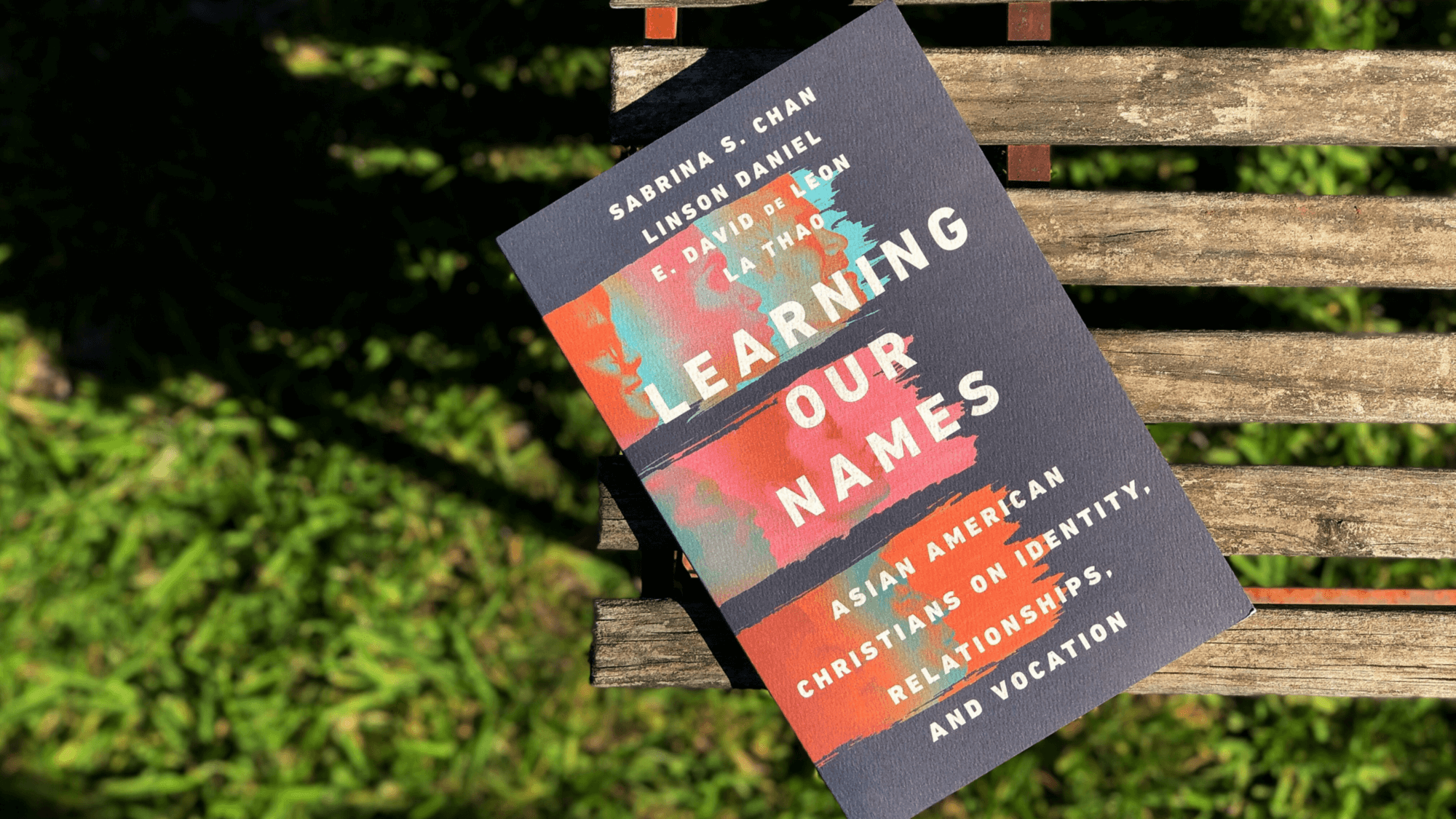Does our culture have space for Asian American Christians? In Learning Our Names, we hear from Asian American Christians on the topics of identity, relationships, and vocation. Written by Sabrina S. Chan, Linson Daniel, E. David de Leon, and La Thao, this book presents a series of topics centered around what it means and feels like to be Asian American and Christian. The East Asian, Southeast Asian, and South Asian backgrounds of the authors are explored with stories and insight.
Asian American Stories
“Part One: Learning Our Stories,” serves as a primer for the Asian American experience. History unfolds in immigration, migration, and labor, and we see how modern-day Asian America came to be through the Cold War and the Civil Rights era. Issues of racialization are addressed, and we are encouraged to bring our anger to God, enter the process of forgiveness, and care for our mental health.
I was most moved in “Part Two: Learning Our Relationships.” In Chapter 4, “Knowing Our Parents,” Thao writes:“‘Have you eaten?’ is a question Asian Americans recognize as a way their parents communicate love.” Thao explains how God’s love is often shown through food, which can help us better see how our Asian parents reflect God’s character. Whether they are saved or not, we are challenged to better know our parents, communicate our love for them, and remember that our parents are people loved by God.
Asian American Identity
This book does not shy away from some of the darker aspects that come with Asian American identity, including sins of sexual assault and abuse. We see how female Asian American stereotypes of being exoticized and subservient, as well as male Asian American stereotypes of being nerdy and unattractive, are ultimately racist, dangerous, and toxic. Partnerships between genders is crucial, and Chan and Daniel agree that both egalitarian and complementarian Christiasns can engage in meaningful partnerships.
This book is also realistic. Parental expectations in regards to dating and marriage are discussed, and religious diversity amongst Asian Americans is addressed. What I found to be most pointed was how many Asian Americans are misunderstood in both the Asian church and the multicultural church. Nevertheless, the church is championed, and readers are encouraged to put in the hard work to find a church home.
God is Still Good
You can feel the already-not-yet tension in this book. Instead of hiding or ignoring it, we are asked to lean into it. We are encouraged to address it. And we are emboldened to share our names, tell our stories, and share how God is still good. May the name of Jesus be the name above every other name.
I received a media copy of Learning Our Names, and this is my honest review.

